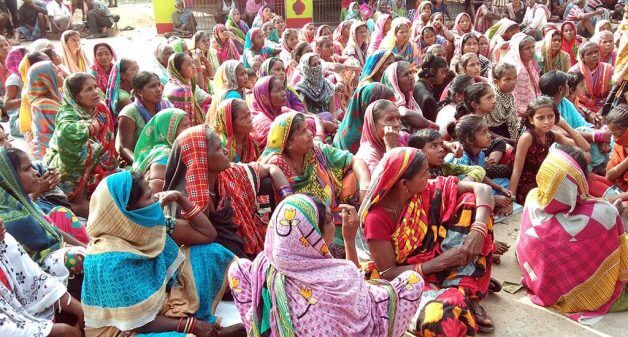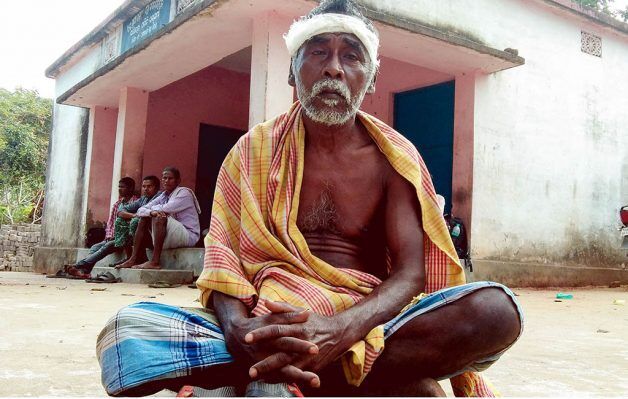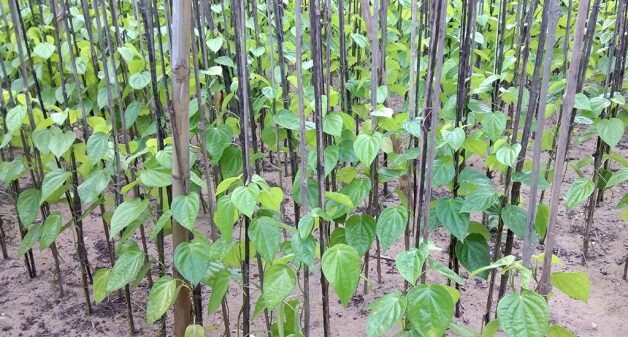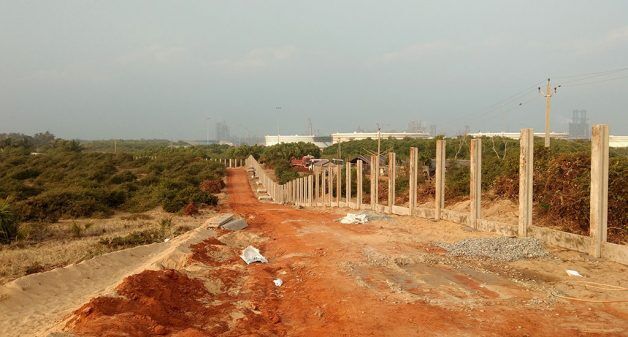
Will Dhinkia lose its betel vines to steel plants?
Unwilling to give up their profitable betel farms, residents of Dhinkia are protesting against the acquisition of their lands for an industrial plant.

Unwilling to give up their profitable betel farms, residents of Dhinkia are protesting against the acquisition of their lands for an industrial plant.
While the port city of Paradip buzzes with coverall-clad workers from the docks, oil refinery and fertiliser plant, there is an eerie air in the surrounding countryside.
On the road leading to Dhinkia village several police vans line the narrow road. No one is in sight, except a middle-aged man with a sack of betel leaves on his cycle.
“These are from my nephew’s farm, which was destroyed a few days ago. I managed to get some fresh leaves to plant in my backyard,” said Ajit Bardhan from the neighbouring Trilochanpur village.
In a tone which was both challenging and helpless, he said, “My six-acre land was taken away in 1999 for the IOCL refinery. We were given a lot of hope for a better future, but nothing has happened yet. It’s Dhinkia’s turn now.”
But Dhinkia in the Jagatsinghpur district of Odisha does not want to meet the same fate.
On January 14, the police lathi-charged the residents protesting the forcible destruction of their betel vines to make way for an industrial plant.
The villagers are refusing to give up their land since it supports their only livelihood.
Trouble began in Dhinkia when the villagers learnt that their betel vines were being uprooted.
“We tried to talk and resolve the issue but the police didn’t listen. They beat us mercilessly. No one was spared. I was hit on the head and my back while trying to protect the children,” said Sudhansu Dalei, with a bandage covering his head.

A woman who wished to remain anonymous said, “We never thought the police would beat children.”
The police say the protestors attacked them first, but the villagers deny this.
This is not the first time Dhinkia is showing stiff resistance against an industrial giant.
In 2011, when officials were acquiring land for a proposed steel plant for the South Korean company POSCO, Dhinkia led the protests with women and children taking centre stage.
Eventually the government excluded Dhinkia from the land acquisition. In 2017 POSCO exited Odisha after several hiccups.
The current protests started last month, when the state government-run Industrial Infrastructure Development Corporation began acquiring 748 acres of land under the Dhinkia panchayat.
Constructing a steel, cement and thermal-power plant for JSW Utkal Steel Limited requires nearly 3,000 acres of land from Dhinkia and two other panchayats.
Villagers from Dhinkia fish and grow paddy, but rely mostly on cultivating betel vines.
“This land is suited for growing betel,” said Prakash Jena, who had come from the neighbouring village to support the protest. In 2013, Jena lost his brother in a crude bomb blast for allegedly protesting the POSCO project.

A single betel leaf, locally called paan, averages one rupee at markets in Odisha, Maharashtra and Delhi. So, a family who owns an acre of land can earn over a lakh each month and employ 30-40 labourers.
The villagers fear losing this livelihood.
“Earlier when industries came up there were promises, but we were cheated. In my village of Govindpur our land was also taken. But, the proposed company was never started and we lost our livelihood,” said Jena.
“Since Dhinkia didn’t bow down then, their betel farms were saved and people from my village now work in Dhinkia as day-labourers,” Jena added.
Besides the livelihood loss, there are environmental concerns too.
Paradip is very polluted and in January 2020, authorities fined six industries Rs 1 crore each for flouting pollution norms.
A study by the Centre for Research on Energy and Clean Air thinks the new plant will be even worse.
It states: “The emission load of the proposed plant will be two times the emissions for the entire cluster at Paradip for particulate matter and two-third for sulphur dioxide, which means that the air quality will deteriorate further, resulting in severe health impact.”

As of now, the proposed industry has not received environmental clearance. However, they have already erected a makeshift boundary demarcating the village from the betel farms.
While Dhinkia managed to thwart the POSCO project, there is a sense of fear this time.
Villagers allege the police threaten protestors with false cases and forced some to publicly support the project.
Though some of his betel vines were destroyed recently, a villager claiming to support the plant said, “The authorities randomly take people away. By the time we reach the police station, they destroy our betel vines.”
After the January 14 lathi-charge, most villagers stayed indoors. When they gathered a week later, women and children were in front, which is seen as unique to Dhinkia.
“The government says we are the future of the country,” questioned a 12-year-old girl. “Is this the grim future they’re referring to? Our land is taken away, our parents are beaten up, so how can we ignore everything and study?”
Activists from other parts of the state are supporting Dhinkia, where the tension remains palpable as people are not ready to give up.
“This has been a 15-year battle. And it shall continue. If they forcibly take our land, we will consume poison and die,” said an elderly woman Reba Das, bursting into tears.
Tazeen Qureshy is a freelance journalist based at Bhubaneswar.